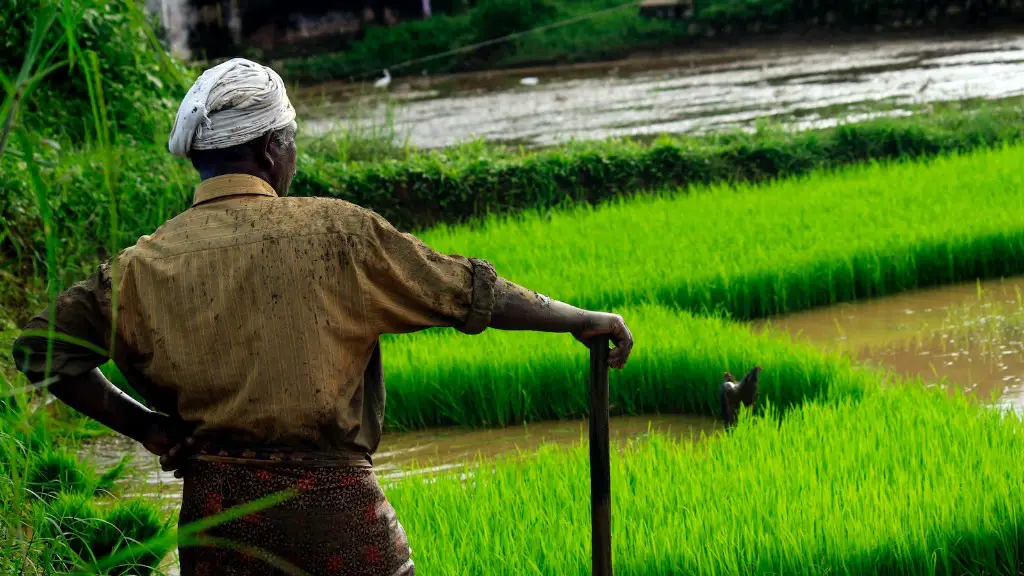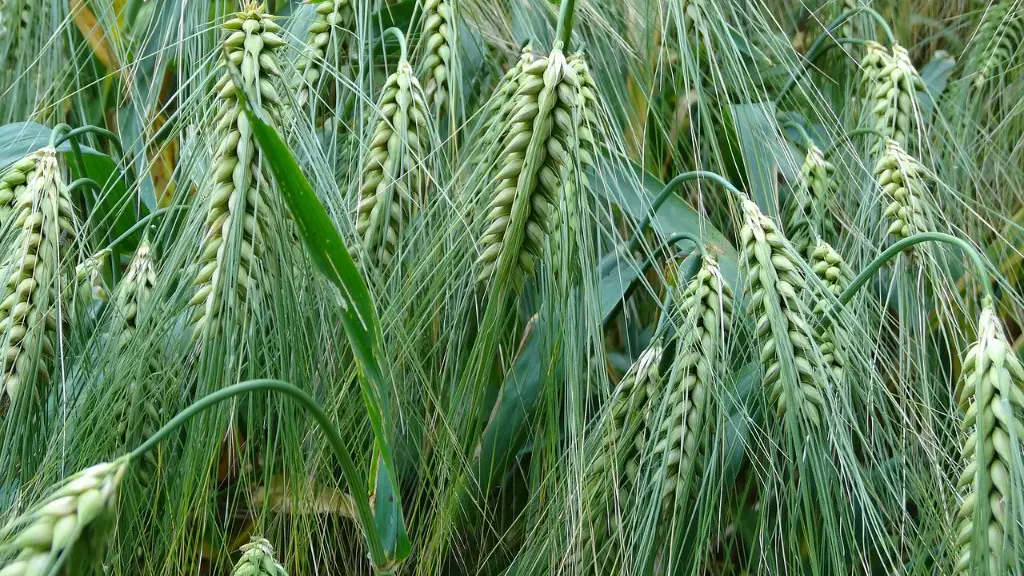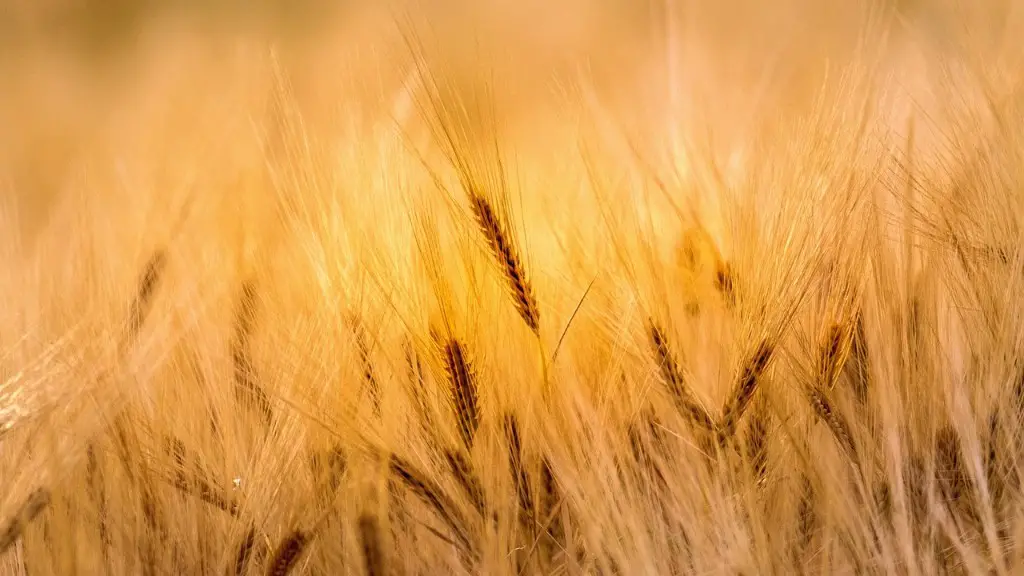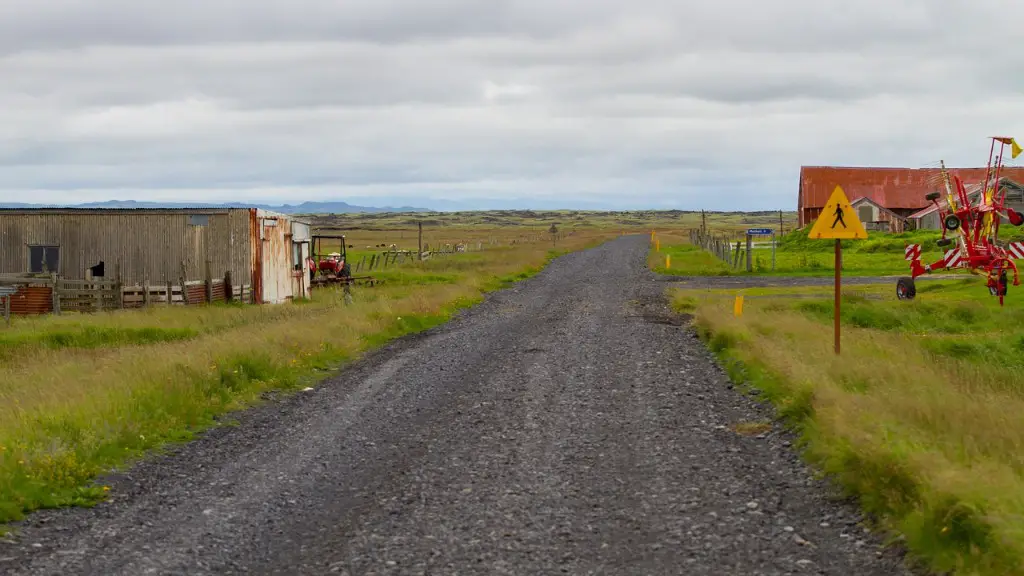As an academic expert, I have many reasons why I am interested in agriculture. To start with, it is an essential field of study that sheds light on the various sources of food production. Furthermore, by understanding the process of crop production, we can have an educated insight into global food supply, helping us to make better informed consumption decisions. Additionally, the basics of modern farming have many transferable skills, such as the ability to plan, budget and manage resources, which can be applied to other aspects of our lives. Agriculture also helps to appreciate and understand the principles of biological and chemical processes, such as the intricate workings of ecosystems. This can then be utilized to ensure sustainability in agricultural practices, which can ultimately help reduce our carbon footprint.
Crop Production
Crop production is an essential feature in the agricultural sector, providing us with food and fiber for sustainability. It is an interesting area to explore and uncover the fundamentals of cultivating the land, applying knowledge and techniques to optimize yields. For example, the soil is an important part of crop production, as it needs to be enriched with organic matter to guarantee optimal growth. To do this, farmers must understand and compute soil composition, nutrients, pH levels and fertility among other aspects.
Additionally, they need to identify suitable types of crops and develop plans on how to plant, fertilize and irrigate them. As a result, it requires in-depth knowledge of crop rotation, which is the cornerstone of successful agriculture. Moreover, pest and weed control helps to protect crop yields and prevent losses. Moreover, modern methods of crop production offer significant yields with sensible inputs. Lastly, there is the all-important processing, packaging and distributing the harvested crops, which are integral components that stand at the frontline of sustainable agriculture, allowing us to provide food for everyone.
Organic Farming
Organic farming has become a popular trend among people who want to support a more natural and sustainable form of crop production. It helps to protect resources and the environment, reducing our food carbon footprint in the process. Instead of harsh chemicals and synthetic fertilizers, organic farming uses natural sources of nutrients to cultivate crops. Furthermore, it engages with a five-step cycle of preparation, planning, planting, maintenance and harvesting to produce crops with greater degrees of nutrition and flavor. On top of that, the use of biological pest control can increase yields without the added costs of toxic chemicals. This can also reduce airborne illnesses and facilitate better health for all.
Organic farming can also help reduce soil erosion, given that it integrates crop rotation practices, cover crops, and other methods that improve soil fertility and health. Furthermore, it helps to support the local economy, by ensuring local communities have access to more organic foods and locally grown produce. Additionally, it helps to preserve genetic variability and biodiversity, as well as helping to optimize water resources for more efficient crop production.
Sustainable Agriculture
Sustainable agriculture is a branch of farming that covers a much broader area of topics and is based on responsible stewardship of resources. It is essential to the long-term future of global food production and thus, requires innovative and effective practices. This includes and is not limited to water conservation, the use of energy efficient farming tools, and soil and water management strategies, just to name a few.
Finally, sustainable farming also involves the adoption of various farming systems with an emphasis on crop rotations, integrated nutrient management and making use of biological and technological knowledge to increase crop yields. These practices help to build soil health and resilience against pests, as well as reducing agricultural runoff. Additionally, this branch of agriculture helps to reduce stress on land resources, reducing pollution and conserving water and energy.
Technology in Agriculture
Technology has become increasingly important in the agricultural domain, particularly in areas of sustainable farming and crop productivity. Techniques such as drones, robotics and satellite imaging help farmers to obtain more efficient and accurate data about the land and crop progress. This can be used to ensure resourceful management and efficient decision making. Additionally, modern farming techniques such as hydroponics and aeroponics can help to maximize the use of land and water resources.
Moreover, modern tools such as advanced software, sensors and data collection systems can help farmers make better strategic decisions. As a result, farmers can become more competitive by utilizing the latest in agricultural technology. Furthermore, it can help to optimize the use of resources, increasing yields without the need for more land or water. Lastly, agricultural technology also provides sustainability in farming practices, allowing farmers to optimize their crop production.
Global Food Supply
Understanding the global supply of food is essential to making sure everyone has access to food. As such, it is a valuable and rewarding area to explore. To start with, we need to understand the root causes of inefficiencies in the food supply chain and how to address them for sustainable food security. This can involve analyzing the main environmental and social drivers that impact food production and consumption. Additionally, stakeholders can work together to promote efficiency and resilience of food systems.
Furthermore, using data and technology can potentially improve crop yields, enhance farmers’ capacity and engagements, and reduce losses within the supply chain. On the other hand, various policies and strategies must be implemented to reduce environmental risks and ensure that global food supplies remain sustainable. Additionally, it is important to recognize the challenges in maintaining food security, including climate change, water scarcity, poverty and inequality. These are key components to ensure global food supplies which can be addressed through more sustainable agriculture.
Economics of Food Production
The economics of food production is an important topic to tackle, in order to ensure a sustainable future. This can include the cost of inputs, how subsidies and government policies can help to reduce them, and how to improve access to resources. Additionally, it is important to look at market dynamics and how they can affect food supply and production. Moreover, the economics of food production can help us understand the various aspects of pricing and how they can vary between regions and countries.
In addition, we need to understand the importance of social and economic aspects related to food production. This includes the effects of poverty, inequality and access to healthcare. Furthermore, looking at the principles of supply and demand helps us to understand the global food market and how it impacts the industry. Finally, analyzing the global economic growth and its impact on the food security and production is crucial to ensuring the future of all countries.



